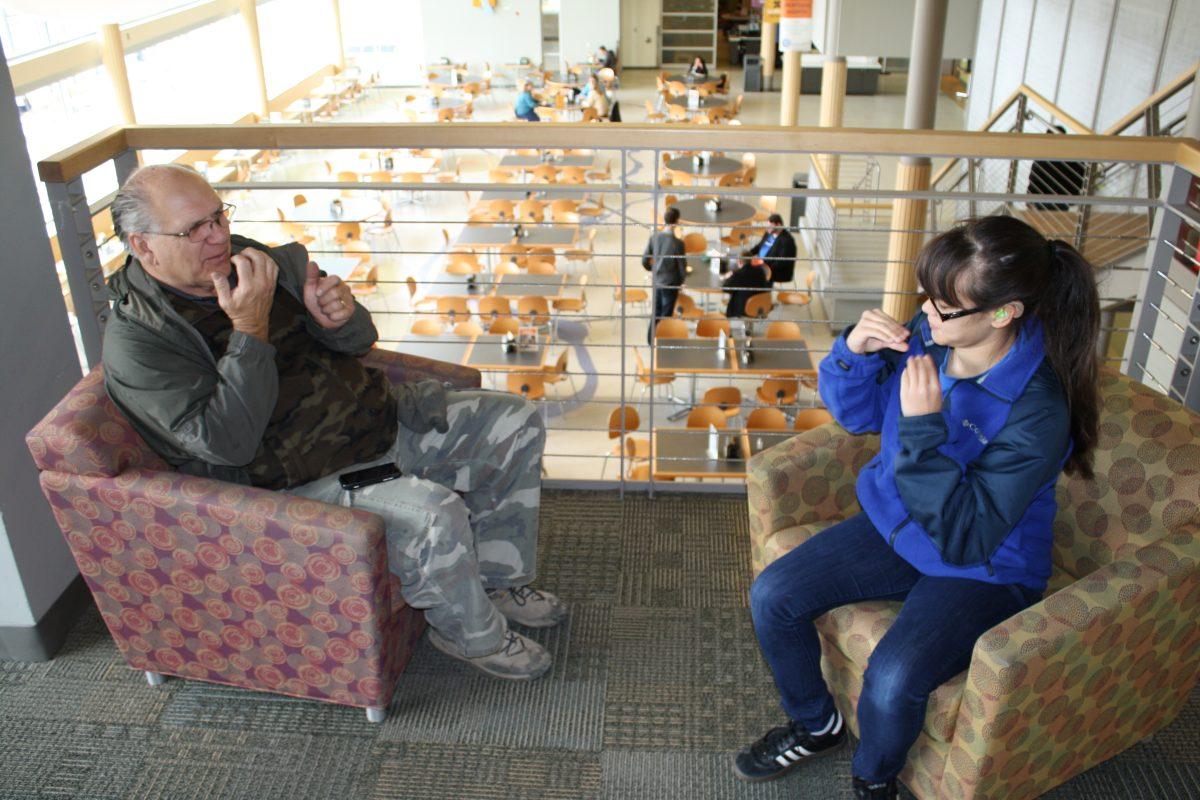Ayla Adkins/The Broadside
Central Oregon is an inviting place. After all, most of the year, it’s sunshine. But sometimes, things aren’t as bright as some would hope. Especially for some individuals within the local Deaf* community.
Cara Frank, a woman who has been Deaf since birth and is a team director for the Deaflympics, commented on how the Deaf community within Central Oregon is small, and this requires “more explaining, increasing awareness, modeling inclusion and working to be understood.”
Another issue is also how people react when someone states that they are Deaf. “When I try to communicate to people that I’m deaf or hard of hearing, they say ‘oh I am too’ or ‘aren’t we all!?’ said Starla McMullin, a hard of hearing woman who lost her hearing as she aged, now only having 13% of her hearing remaining.
But what can the local community do to build the bridge between the hearing world and the deaf world? Frank explains that asking a Deaf person to lipread is “burdening them with your hearing privileges/conveniences.” Or, by showing off the three signs, someone may know (usually curse words in her experience) one is doing more harm than good as she states that she thinks “it’s cultural appropriation. Basically, you’ll take the time to learn how to make insults in sign language, and when you come across a deaf person, you show it to them with great pride?”
Frank shifts focus from ‘what not to do’ and encourages learning signs that will be useful in the real world, “Like if you’re a bartender, learn how to sign Beer or ID.” She also stresses that, “there is no deaf person on the Bend Inclusion Committee, and I think there should be one. Redmond has yet to develop an inclusion committee. Space needs to be created for deaf people so we can all coexist.”
McMullin also elaborates on the topic by stating that when speaking with someone who is hearing impaired, one should “face them, speak clear and slow, and don’t just raise your voice. I don’t like feeling like I’m being yelled at.”
She also said, “One thing that needs to be addressed is the accuracy and efficiency of closed captions. They are either non-existent, slow, wrong, or made a pretty color, so they blend right in with the picture.” McMullin sums it up to the phrase, ‘don’t fix something that isn’t broken.’
Educating individuals on the Deaf community and ASL is crucial to creating a diverse and equal Central Oregon. McMullin supports the idea of having ASL classes available to students. She said that “nothing but good things could come from it!”
Frank also chimed in and said that “COCC used to offer ASL through their independent learning program (which I taught). A few years ago, attempts were made between WOU and COCC for an ASL collaborative program. I believe the leaders at COCC weren’t motivated enough to take that possible collaboration to the next level. It would be nice to revisit that discussion.”
*Deaf is capitalized because many Deaf people are proud of their deafness and culture. Many do not see it as a disability but rather a different way of life.








